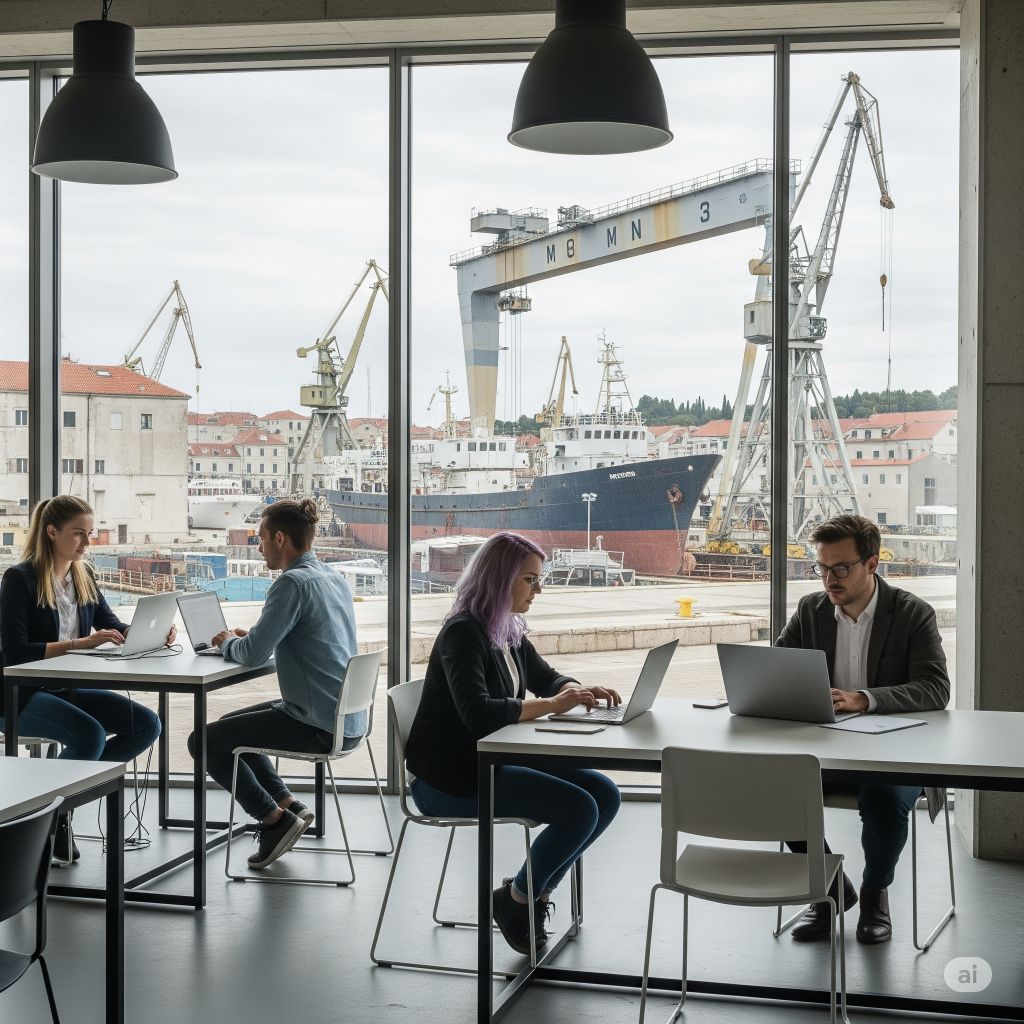For a century, the defining sound of cities like Bar or Rijeka was the metallic clang of shipyard and port cranes against the Mediterranean sky. Today, a new sound is joining that industrial symphony: the rapid-fire clicking of keyboards from bustling co-working spaces overlooking the sea. The Adriatic coast, long celebrated for its ancient Roman ruins and crystal-clear waters, is beginning to write a new digital chapter.
The Digital Transformation Takes Root
While the transformation is still in its early stages, several factors are converging to make Adriatic port cities increasingly attractive to remote workers and tech entrepreneurs.
The Lifestyle Factor
The appeal is obvious: why choose a crowded metropolis when you can work with a view of the Adriatic and take afternoon swims? The region's quality of life has become a significant draw for location-independent professionals seeking an alternative to traditional tech hubs.
Emerging Policy Support
Montenegro has introduced a digital nomad visa designed for remote workers, issued for two years and renewable for another two years, allowing digital nomads to live in Montenegro for up to four years. The income requirement is relatively low at around €1,400 per month, making it accessible to many remote workers.
Digital nomads in Montenegro are exempt from paying income tax during their stay, providing additional financial incentives for remote workers to choose the country as their base.
The Cost Advantage
Compared to established European tech hubs, the Adriatic region offers significantly lower costs of living and business operations, though specific data on office space and housing costs in these cities requires further research.
Split: Croatia's Established Digital Hub
Split has emerged as the most developed example of this transformation. Split Tech City is a community composed of companies, startups, associations, initiatives, institutions and individuals that encourage and develop the IT sector of Split and the surrounding region.
The Works is a coworking space that serves as home to locals working remotely and digital nomads who have discovered the Adriatic coast, offering coworking 24/7 with high speed WiFi. Split has seen an increase in digital nomads, which has given rise to several coworking spaces that are unique in their own ways and located in different parts around Split.
The birth of Split's startup ecosystem began in the 2000s, when entrepreneurs started its tech community, indicating this is a gradual development rather than a sudden transformation.
Other Croatian Ports
Croatia has six ports of international economic importance: Rijeka, Zadar, Šibenik, Split, Plo?e and Dubrovnik, though their individual tech sector development varies significantly.
The Reality Check
While there are promising signs of digital transformation along the Adriatic coast, the extent of this "tech revolution" should be viewed with appropriate context:
- Split appears to be the most developed hub, with established coworking spaces and a documented tech community
- Montenegro's digital nomad visa is relatively new and its impact is still developing
- Many claims about specific startups, major tech companies, or rapid growth in cities like Bar or Durrës lack verifiable sources
- The transformation is more gradual and localized than the term "revolution" might suggest
A Growing Trend Worth Watching
The Adriatic coast is experiencing genuine growth in remote work and digital nomad activity, particularly in Split. Croatia has been identified as an emerging tech hub, working to diversify beyond its tourism-dependent economy. The combination of lifestyle benefits, supportive government policies, and lower costs compared to traditional European tech centers creates favorable conditions for continued development.
However, this transformation is still in its early stages. While the infrastructure and community support are growing—particularly in Split—the broader "tech revolution" across multiple Adriatic port cities remains more potential than established reality.
The region's future as a tech destination will likely depend on continued policy support, infrastructure development, and the ability to attract and retain both local talent and international remote workers. The foundation is being laid, but the full story is still being written.

